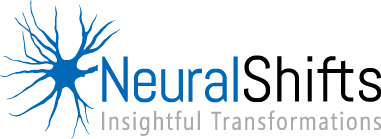A few months ago, Sarah joined a Fortune 500 company with enthusiasm and eagerness to contribute to an organization that professed to prioritize inclusion. However, within weeks she noticed something peculiar: her colleagues remained silent during meetings, never daring to challenge their boss or ask questions.
Undeterred, Sarah decided to speak up and ask questions. But her initiative was met with resistance. Her boss told her to remain quiet and let her more senior colleagues speak first. She was told she needed to learn more about how things were done before sharing her thoughts.
Sarah soon found herself walking on eggshells. The low psychological safety in the workplace was taking its toll on her team’s performance. In one interaction, Sarah decided to join her colleagues in silence rather than risk derailing her career advancement opportunities.
In today’s fast-paced business environment, it is crucial for employees to have a voice in decision-making processes. This can help organizations make timely and efficient decisions that keep them competitive.
What is Employee Voice?
Employee voice refers to the ability of employees to express their opinions, concerns and ideas within an organization. It is an essential component of a healthy and productive workplace culture. Below are the key benefits of encouraging employees to speak up.
Benefits of Employee Voice
First, employee voice leads to better decision-making outcomes. When employees are encouraged to share their ideas and opinions, decision-makers have access to a broader range of perspectives and information. This, in turn, leads to more informed and better decisions. This way you can avoid becoming the next Enron.
Second, employee voice can lead to increased innovation and creativity. When employees are allowed to share their ideas and opinions, they are more likely to think outside the box and come up with creative solutions to problems. This can lead to a competitive advantage for the organization, as it can innovate and adapt more quickly than its competitors.
Third, employee voice can improve organizational culture. When employees feel that their opinions are valued and heard, they are more likely to experience job satisfaction and feel invested in the organization’s success. This, in turn, can lead to a positive organizational culture, characterized by open communication, trust, and collaboration.
Why do Employees Stay Quiet?
According to research by Brinsfield and colleagues, employees may choose to remain silent “if they feel their opinions will not be taken seriously or if they believe their input is not valued. Hierarchical structures, power differentials, and fear of retaliation can also act as barriers to speaking up”. For example, Sarah chose to stay quite due to concerns about potential retaliation that could impact her career advancement.
Breaking Down Barriers to Employee Voice
To overcome these obstacles and create a more inclusive workplace, managers must implement inclusive meeting practices and actively seek feedback from their employees. They must also be willing to listen and avoid shaming employees for speaking up. At the organizational level, it is important to establish policies and procedures that encourage employee input and provide training on how to effectively give feedback.
In conclusion, employee voice is a critical component of effective organizational decision-making. Organizations that actively seek employee input and feedback benefit from better decision-making outcomes, increased innovation and creativity, and improved organizational culture.
References:
Brinsfield, C. T., Edwards, M., and Greenberg, J. (2009). Voice and silence in organizations: Historical review and current conceptualizations. Voice and Silence in Organizations. Edited by Greenberg, J. and Edwards, M. Bingley, UK: Emerald Group Publishing.3–33.




0 Comments